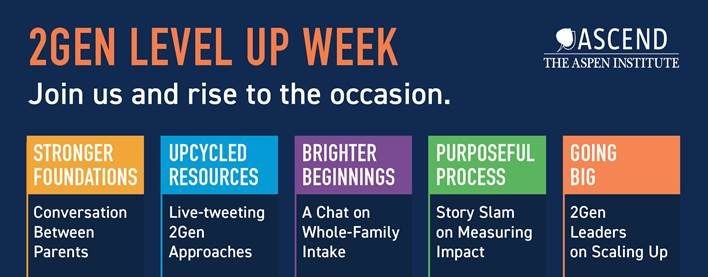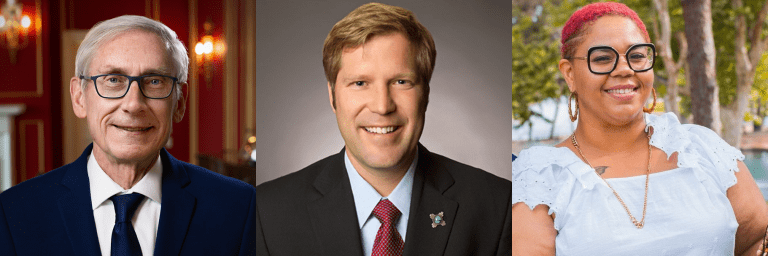WEBINAR: Stopping Behavioral Health and Substance Use Disorders Where They Start: Prevention and Treatment in Adolescence
As the hub for breakthrough ideas and collaborations that move children and their parents toward educational success and economic security, Ascend is intensifying its efforts in the midst of the coronavirus pandemic to highlight 2Gen solutions that Ascend Fellows and the Ascend Network have developed over the past decade to help families reach their potential. Ascend is examining how new solutions, anchored in a 2Gen approach, can build and improve long-term outcomes that stabilize the health, economic well-being, and education of families as they recover and move forward from the COVID-19 crisis.
In a series of webinars, Ascend will tap the insights, expertise, and resources of the Ascend Network, Ascend Fellows, parents, and policy partners to offer solutions for how best to assist families now and ensure they have a stronger, more equitable future. Read on to learn about the Stopping Behavioral Health and Substance Use Disorders Where They Start: Prevention and Treatment in Adolescence webinar, and visit this page to learn more about the series.
Stopping Behavioral Health and Substance Use Disorders Where They Start: Prevention and Treatment in Adolescence
With the generous support of the Alexander and Margaret Stewart Trust, Children’s National Hospital, MedStar Georgetown University Hospital/Georgetown University Medical Center, and Ascend at the Aspen Institute hosted the fourth conversation in Transforming Child and Family Mental Health in Washington, DC: A four-part dialogue to inspire visionary change in mental health promotion, prevention, and treatment for children and families in the Nation’s Capital.
Behavioral health concerns, such as anxiety and depression are common among adolescents, as is substance use. For example, half of all behavioral health problems begin by age 14, and youth from 12-20 years of age account for about one-tenth of all alcohol consumed in the United States.
Like all areas of behavioral health, prevention and early intervention for adolescent behavioral health and/or substance use disorders is critical. And, we know that times of crisis increase the prevalence of behavioral health disorders and substance use, making this conversation all the more urgent.
In this peer-to-peer conversation, local and national leaders shared how they are innovating to prevent and intervene to address behavioral health and substance use disorder prevention and treatment among adolescents and young adults.
The webinar recording can be found here, and the presentation slides can be accessed here.
Learn more about the District of Columbia Department of Human Services’ diversion programs for adolescents here and here.
Speakers:
- Lee Beers, MD, Medical Director, Municipal and Regional Affairs, Child Health Advocacy Institute at Children’s National Hospital
- Matthew Biel, MD, MSc, Division Chief of Child and Adolescent Psychiatry, Associate Professorof Clinical Psychiatry and Pediatrics, Georgetown University School of Medicine
- Marjorie Sims, Managing Director, Ascend at the Aspen Institute
- Dr. Aditi Vijay, Clinical Psychologist and Clinical Assistant Professor, MedStar Georgetown University Hospital
- Shana Simkin, Clinician and Faculty, MedStar Georgetown University Hospital
- Dr. Melissa Long, Attending Pediatrician, Children’s National Hospital
- Dr. John Straus, Founding Medical Director, Massachusetts Child Psychiatry Access Program
- Dr. Sharon Levy, Director of Adolescent Substance Use and Addiction Program, Boston Children’s Hospital and Associate Professor in Pediatrics, Harvard Medical School
- Barbara Parks, LICSW, Deputy Director of Children/Youth Services, Community Services Administration, District of Columbia Department of Behavioral Health
- Dr. James Ballard III, Clinical Director, District of Columbia Department of Human Services Family Services Administration
- Hilary Cairns, Deputy Administrator, District of Columbia Department of Human Services Youth Services Division
Related Posts















